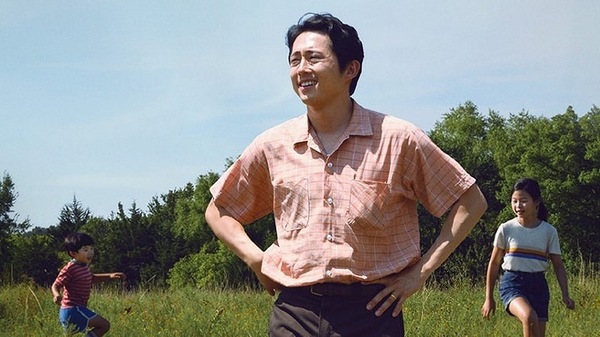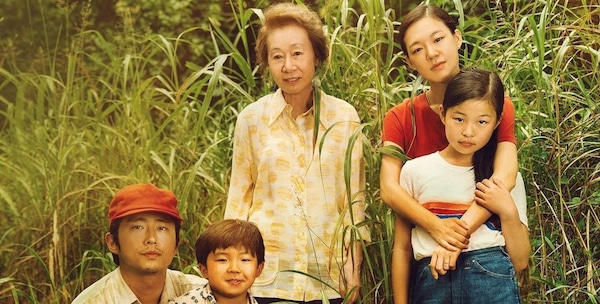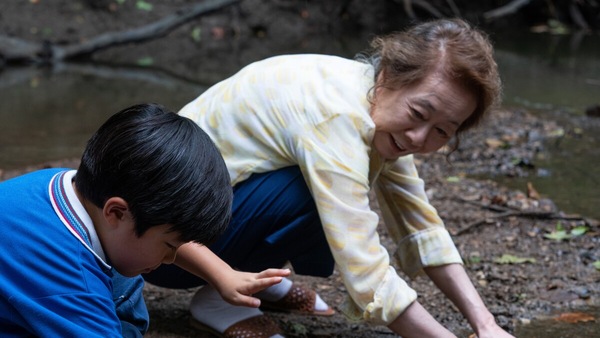5 reasons why you should watch Minari
Minari is an emotional tale of a family of South Korean immigrants trying to survive in America. Nominated for six Academy Awards, this film is a must watch

Last Updated: 12.00 AM, May 11, 2021
Lee Isaac Chung’s Minari has made history in more than one way - not only is Youn Yuh-Jung the first South Korean actor to be nominated for an Oscar for acting, but she also is the first to win the award. Minari is the bittersweet story of a South Korean family chasing the coveted American dream. Based on a semi-autobiographical account of the director’s life, Minari is set in the 1980s in the Ozarks of Arkansas.
Struggling to make ends meet, Monica (Yeri Han) and Jacob (Steven Yeun) are adapting to the new ways of life in America in the film. Their children David (Alan Kim) and Anne (Noel Kate Cho) are trying to keep up as well and so does their grandmother (Youn) who moves in with them. Chung has beautifully painted the portrait of a family trying to stay afloat, resilient in their resolve to make their place in a new country, tied together in their aspiration by the familial bond they share. The film struck a chord with immigrants all around the world, who have experienced an overwhelming level of feeling displaced and being outsiders in a place they are trying to call home.
If the six Academy Award nominations that the movie raked up are not enough to convince you to watch Minari, here are five reasons why it deserves your attention.
1. Minari teaches important lessons about marriage and family
As supportive as Monica wants to be, her frustration at the never-ending isolation she faces as an immigrant in America starts pervading through the cracks of her marriage with Jacob. She wasn’t convinced of Jacob’s idea to make a life for them in America to begin with, but decides to give it a shot, placing her faith in her husband. However, when things start to go awry and Jacob places all they call their own into the farm, their relationship starts to crumble. Their incessant fights take a toll on their marriage, which has been weakened by their immigration. Minari does not shy away from portraying the ups and downs of marriage in the most authentic way - you significant other may not always believe in you and not every day of married life is pure bliss.
The idea of family is strong in the movie. When the kids notice that their parents are far from an ideal couple, they do what every typical South Asian family is taught to do - ignore the problem. Their own inhibitions about America and adjusting to a life here, knowing their parents are struggling, brings them closer together as siblings. With their typically charming Korean grandmother moving in, Minari is able to accurately illustrate a Korean immigrant family.

2. An authentic representation of the sacrifice immigrants make to reach the American dream
The Yi family is grappling with their new reality right from the very beginning. The culture of rural America is so unlike the Korean culture they have imbibed that their sense of alienation is doubled. As the kids start growing in the US, they begin to adapt to the culture with ease. But this poses another difficulty - they are unable to bond with their grandmother. In another scene, Monica wells up with homesickness when her mother hands her a bag of red chilli flakes and dried anchovies. In the quest to find a better standard of living, immigrants often have to leave their culture and memories of their homeland behind to start fresh.
Though the characters try to keep their Korean culture alive, especially highlighted when Jacob desires to plant Korean vegetables in his farm and connect with the budding Korean community in Arkansas, Minari is a painfully truthful movie about the strains that immigration puts on families. The fact that the film makes abundantly clear is how difficult it is to succeed in a country which supposedly beams with opportunities.

3. The stunning cinematography of Minari
An independent reason to watch the film is the delicate, yet powerful, cinematography of Minari. Since the movie is set in Arkansas, each outdoors shot is lush with green landscapes and nature. The emotions that the film evokes are reflected in the cinematography- the colour palette is soft and natural and the movie features plenty of the sun’s warmth. Some shots stay with the audience even after the screen turns to black at the end of a supremely aesthetic 115 minutes, like the bugs that fly through the air as the sun sheds light on the pollen in the farm, and the scene where David walks through the farm.

4. The story of Soonja
The portrayal of Soonja by Youn was so remarkable that the actor won the Academy Award for Best Supporting Actress for her role. She is not a typical Korean grandmother - she does not believe in tradition and elegance. Soonja swears, drinks Mountain Dew and does everything a typical Korean grandmother would be horrified to do. However, her portrayal never edges on blasphemy to the Korean culture. She is dignified and though she struggles to connect to her grandchildren, she makes all attempts to get through to them.
Soonja and David’s relationship alone is a strong reason to watch the movie. She is the only one who sees David as he wants to be seen. Soonja is not the grandmother he expected to meet- she is nothing like an American grandmother. But the more David opens up to Soonja, the more he sees their relationship flower.
The same David who initially complains that his grandmother smells like Korea finds himself waiting for the minari seeds she plants next to the creek to eventually grow.

5. Minari is full of light-hearted moments
Though Minari evokes sadness and reminiscence, it is also full of fun moments that break the narrative at the right time. When things get too emotional, the childlike tricks of David are able to make the audience chuckle. On one occasion, he even successfully tricks his grandmother into drinking urine. Chung has carefully crafted a tale that is equal parts moving and amusing.

